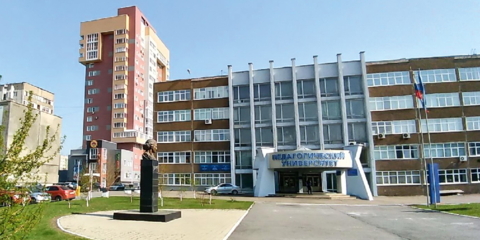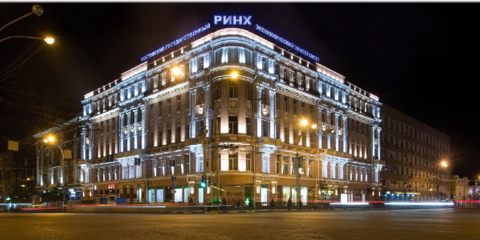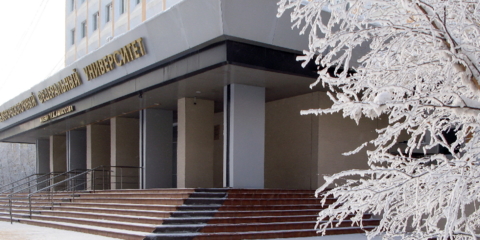
Foreign citizens applying to Russian universities have to undergo some formal procedures. Notarization, legalization and recognition of academic credentials – all of this can spark some concern among applicants, to put it mildly. Our editorial team receives questions about such credentials. Let's dig into these processes.
Each country has its unique education system. Despite the fact that countries participate in the Bologna Process, some world universities still offer traditional degrees too (e.g. Specialist's degrees in Russia). So, a foreign school leaving certificate or diploma can have quite different content and quality. The legalization and recognition procedures are necessary so that admissions offices can make certain that credentials are authentic and applicants are ready to complete study programs according to the country's standards.
Foreign citizens' academic credentials must be translated into Russian and notarized. If necessary, they must be legalized and accompanied by a certificate of recognition (its obsolete name is nostrification). What credentials exactly are to be notarized, recognized, and legalized? Check this with the responsible individuals from the university’s admissions office or the international relations department.
Legalization of foreign credentials and recognition of foreign education are different procedures.
Credentials are legalized so that they can be legally used in another country. Education is recognized so that applicants can gain the right to study and work. Recognition of education also confirms its importance.
Notarized Translation
When applying to a Russian university, you must submit a notarized translation of your academic credential (and its supplement) and passport into Russian. These credentials with translation must be submitted to the admissions office so that you are allowed to take entrance exams. Notarized translation can be made at the Russian Consulate or Embassy in your country.
Legalization
To submit your academic credentials for recognition, you must have them legalized.
According to the legislation of the Russian Federation, the documents issued in another country can be used (accepted by Russian authorities and organizations) only if they are legalized.
Legalization is the authentication of academic credentials. The credential gives a person having foreign education the right to continue their education at Russian educational institutions.
Your academic credential does not need to be legalized if the credential issuing country and Russia have signed a mutual legal assistance treaty abolishing this requirement, and your credential falls under this treaty. You can find the full list of countries on the website of the Main State Center for Education Evaluation or check it with the Russian Embassy in your country. If you do not need to have your credentials legalized, it is enough to submit your original credential and its notarized translation to the university's admissions office.
The Ways To Legalize Academic Credentials
- Simplified Legalization (Apostille)
If your country has joined the 1961 Hague Convention, you can have an apostille affixed to your credential. In this case, it will be considered valid in over 100 Hague Convention countries including Russia.
An apostille is affixed to the original credentials or their copies. Stamp duty for an apostille is determined independently for each country. For example, in Russia, it is 33 $ as of December 2020.
Foreign credentials are legalized to be used legally in another country. This procedure is always
is carried out only in the country where the academic credential was issued and/or executed. For example, Russia cannot legalize the UAE diploma, and the UAE cannot legalize the Russian diploma.
You can find a responsible authority for each country on the 1961 Hague Convention website.
- Standard (Consular) Legalization
This is a more complex procedure carried out step by step at the issuing country's institutions, and then certified at the Russian consulate. This type of legalization is relevant for the countries that did not ratify the Hague Convention.
The authorized person’s (schoolmaster's, for example) signature and stamp are certified.
So, both stamp and signature must be distinguishable and readable. The procedure is carried out by the official authorities of both parties i.e. the credential issuing country and the accepting country represented by the consulate in the issuing country. The credential can only be used in the country where the consulate will certify it at the last stage.
The whole procedure takes from one week to three months depending on the country.
Why Do You Need To Have Your Russian Diploma Legalized?
- To go on to further study in another country
- To find employment in another country
Is Legalization Always Required?
No. It is not required for the countries that have signed a multilateral or bilateral agreement abolishing the requirement for legalization with Russia.
Is Legalization Universal For All Countries?
No. There are two types of legalization: apostille and consular legalization.
- Apostille is required in the countries participating in the 1961 Hague Convention.
- Consular legalization is used for all other countries.
Where Are Credentials Legalized?
- In the credential issuing country (your country)
- At the consulate of the state whose university issued the diploma (if legalization is carried out in Russia)
How Long Does It Take To Obtain An Apostille?
As a rule, it takes from three to five business days to apostille the credentials.
Does An Apostille Need To Be Translated?
No, it does not. A translation is required for the credential itself, which is certified by an apostille. At the same time, the translation must be notarized.
23.12.2020








